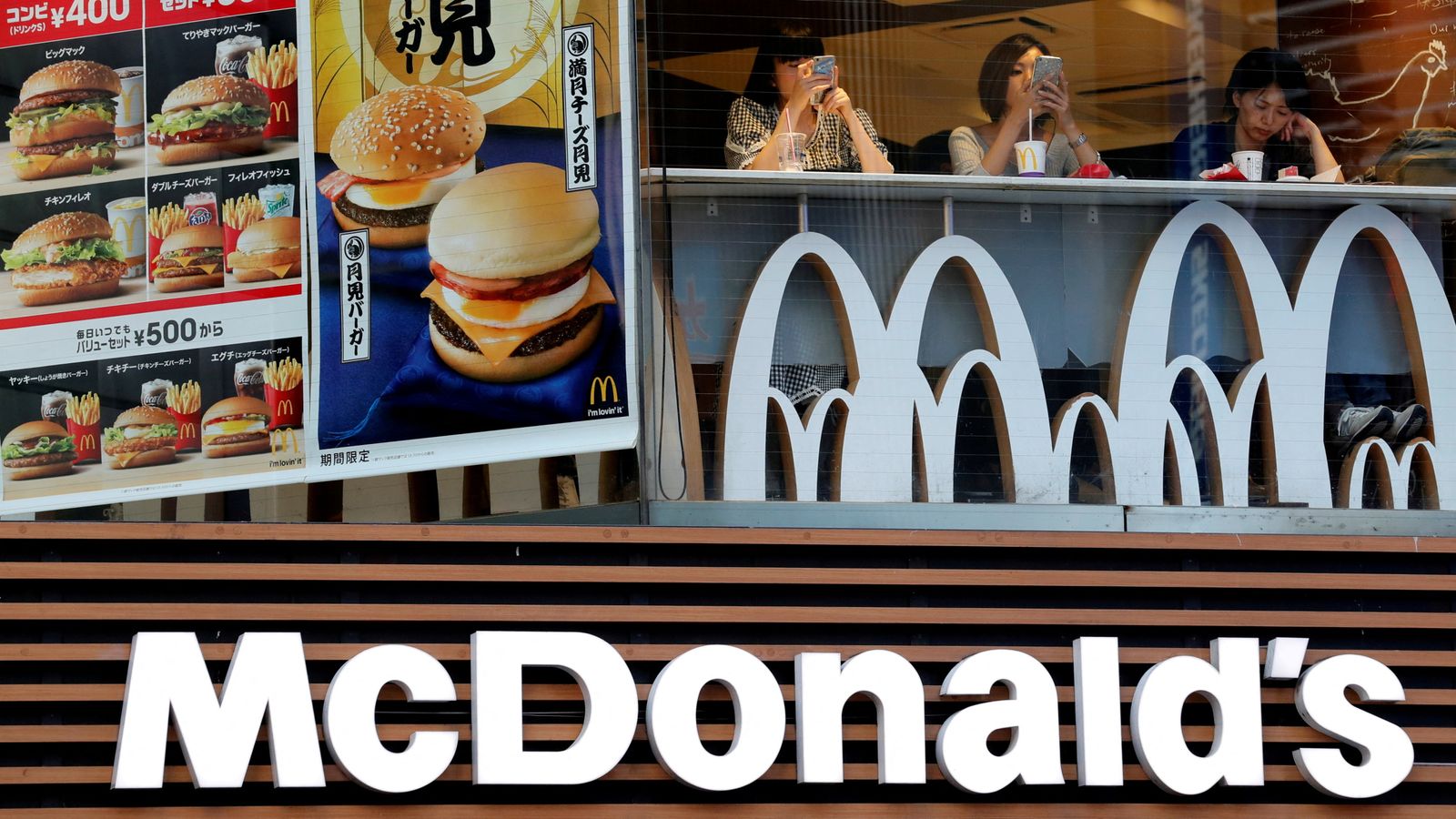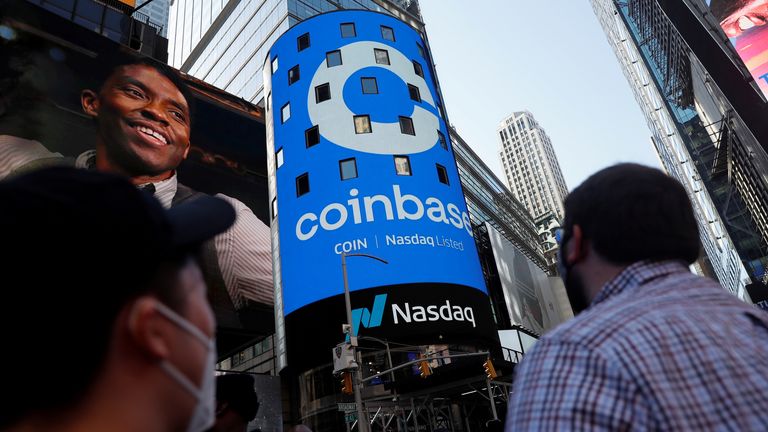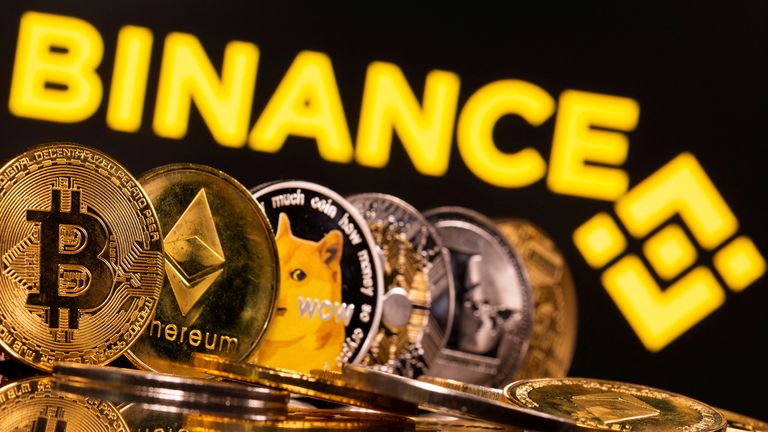
With the west having unleashed severe financial sanctions, and companies abandoning Russian operations, attention is now turning to businesses yet to take a stand.
While many bastions of corporate America, including Nike, Apple, ExxonMobil and Harley-Davidson have pulled out of Russia, some of the most famous corporates are still in the country, for now.
Overnight, the chief of New York state’s pension fund singled out McDonald’s and Pepsi.
Thomas DiNapoli, who is comptroller of the $110.8bn New York State Common Retirement Fund, told Reuters the companies “need to consider whether doing business in Russia is worth the risk during this extraordinarily volatile time”.
Read more: Putin issues fresh warning as NATO issues ominous prediction
He added: “Russia’s unprovoked invasion of Ukraine and its highly unpredictable foreign policy are a threat to the global economy.
“We’re encouraging the companies we invest in to do a risk analysis and determine what is in the best interests of their company and their shareholders.”
The first Western brand made and sold in Russia
Both McDonald’s and Pepsi were among the first western companies to enter the old Soviet Union.
Pepsi was the first western brand made and sold in the state. In 1959 its head of international operations Donald Kendall, who later went on to become chief executive, famously handed Nikita Khrushchev, then the former Soviet premier, a Pepsi at the American National Exhibition in Moscow.
Just over 14 years later, the drink made it into the Soviet Union, several years ahead of its rival Coca-Cola.
McDonald’s, meanwhile, received permission from the Communist Party in 1988 to open in the state and, at the end of January 1990, its first outlet opened on Moscow’s Pushkinskaya Square. Some 5,000 people queued for up to six hours to get into what was the country’s first fast food outlet.
No intention of banning Russians
Depriving Russians of their burgers and cola is one thing. But another, arguably more serious, omission so far from the list of bodies imposing sanctions against Russia concerns the cryptocurrency space.
The cryptocurrency exchanges Coinbase and Binance have made clear repeatedly – and did so again today – that they have no intention of banning Russians from their platforms.
This has raised concerns that some Russians, particularly those who have been individually subjected to asset freezing orders by the US, the EU and the UK, will use it in order to circumvent financial sanctions.
The US Treasury has told the exchanges not to facilitate transactions by individuals or organisations that have been sanctioned while Bruno Le Maire, the French finance minister, has said the bloc may impose restrictions to ensure that remains the case. Christine Lagarde, president of the European Central Bank, has also reportedly been pushing for this.
And Mykhailo Fedorov, Ukraine’s deputy prime minister, tweeted on Wednesday: “I am calling on all major crypto exchanges to block addresses of Russian users.
“It is crucial to freeze not only addresses linked to Russian and Belarusian politicians, but also to sabotage ordinary users.”
Today, though, Brian Armstrong, the co-founder and chief executive of Coinbase, insisted it was not undermining sanctions and stressed the company would follow the law.
In a series of tweets he said: “We don’t think there’s a high risk of Russian oligarchs using crypto to avoid sanctions. Because it is an open ledger, trying to sneak lots of money through crypto would be more traceable than using US dollars, cash, art, gold or other assets.
“In addition, we are not pre-emptively banning all Russians from using Coinbase. We believe everyone deserves access to basic financial services unless the law says otherwise.
“Some ordinary Russians are using crypto as a lifeline now that their currency has collapsed. Many of them likely oppose what their country is doing, and a ban would hurt them, too. That said, if the US government decides to impose a ban, we will of course follow those laws.
“Sanctions are a complex issue, and the situation is changing fast, so we’ll keep working with law enforcement and governments, and will take more steps as needed. We’ll also of course keep working to enable crypto services for the people of Ukraine who are in need of help.”
Binance is of a similar opinion. It told CNBC: “We are not going to unilaterally freeze millions of innocent users’ accounts.
“To unilaterally decide to ban people’s access to their crypto would fly in the face of the reason why crypto exists.”
What is not disputed is that, in the days after it was announced that Russian banks would be barred from SWIFT, the interbank communications system that facilities cross-border payments, cryptocurrency transaction volumes swelled.
The price of Bitcoin has risen by just under 7% this week although Ethereum and Dogecoin, having spiked higher on Monday and Tuesday, are more or less unchanged on the week.
Supporters of the crypto exchanges argue that, even if they were to bar Russians from their platforms, it would make little difference because there are so many other exchanges that they could use to trade the currencies.
It also seems unlikely that, as Mr Armstrong asserts, crypto will be of meaningful assistance to any oligarchs whose assets have been frozen because those transactions would be more easily tracked.
And there is another crucial factor – the relative shallowness of the crypto markets. Transaction volumes in cryptocurrency, even at the elevated levels seen earlier this week, only amount to a few billion dollars. That may sound like a significant sum of money but it is tiny compared with the near $7tn that changes hands daily in the foreign exchange markets.
It is also relatively small compared with the sums that sanctioned oligarchs and entities would be trying to move. An oligarch trying to shift, say, $5bn through the crypto markets would show up very quickly.
The current crisis does, however, feel as if it may be a significant moment in the history of cryptocurrency and perhaps the moment where the asset becomes subject to heavier regulation than it has to date.
This news is republished from another source. You can check the original article here



Be the first to comment